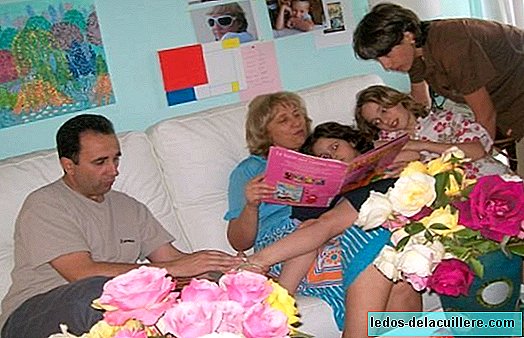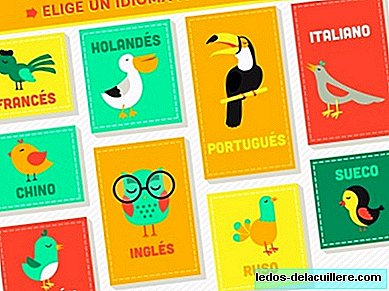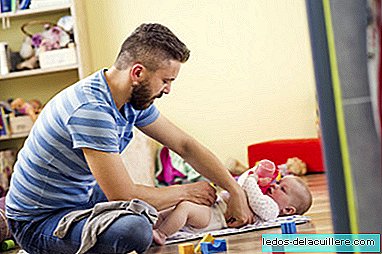In this video, which includes an interview with Laura Mascaró, author of the book "Education and freedom" are explained the reasons and organization of families who opt for home schooling, a less conventional educational method, with pros and cons, but equally suitable, in my opinion and experience, to give cultural, academic, social and emotional training to your children.
If I had to explain my reasons for opting for homeschooling or home education, actually, they would give for a book. Let's leave it for my son and my family is the best option. For each family there are different reasons.
We travel a lot and do not reside in Spain on a regular basis in part thanks to this educational decision. For pedagogical reasons, very powerful, for emotional and social reasons, for personal reasons, for the special characteristics of the educational needs of my son who is gifted and in the conventional school was dying of sorrow and boredom, we have decided not to use conventional school and educate at home, or rather, provide global training to our child without using the resources of normal school.
We have opted for the homeschooling and is enrolled in a non-face-to-face American school, which gives us the flexibility of location, content, pedagogy and schedules we need. He is happier than ever now and also learns much more and with greater pleasure.
Sociability

He has personal relationships and chosen friends and with whom he is delighted, plays, makes projects, investigates. I had never had friends like this before. Never. He has 5-year-old friends and 16-year-old friends, with whom he shares affection, mutual care, interests and games. In this regard he has won a lot. The social facet has been fully covered.
At school it didn't fit. He talked a lot, about topics that were of no interest to anyone, he wasn't competitive. He talked about paleontology and not football. He did not accept as logical the unquestionable authority, the ranks, the duties, the memorization, the schedules, the punishments, because at home he did not educate in that way, although he understood that those norms were of the center and he was a very polite boy who did not know He faced and was kind to everyone. But I was not happy, because everything around the school collided with the freest education I had at home or found children of other ages and similar sensibilities. I was quite alone. And above all, the school was not adapted to the educational, creative and research needs it had.
Whoever lived that situation will understand it well. And although it is difficult to assume, it is possible to develop all the sociability of a child outside the school environment perfectly for those who decide, without underestimating the choice of the school.
He feels sure of himself, which he was not before. He knows that he knows, he knows that it is worth, he knows that he is accompanied and that he can with any difficulty.
It does not grow in an environment contrary to our beliefs, which are not religious but educational beliefs, do not punish or see punishment, do not learn by obligation but by taste. He does not study from memory, but uses memory. Violence is not everyday and does not obey the authority or rules that it does not share, but rather negotiates and communicates.
He spends a lot of time with his friends, with his mother, with his father, although we don't live together, with his family, with people of all ages at which he chooses directly based on his interests and feelings. He has plenty of time to develop the social and emotional facet of his personality.
Talk like a parrot with people of any age. They tend to gape at their safety and empathy.
Educational needs
This summer we went to the doctor. In the end the doctor was entertained in explaining with graphics the circulation of the blood and the functioning of the lungs. He asked me is it normal? As if it were not normal for a child to be like him.
Of course it's normal, only grows without limitations to his intelligence and his desire for social relations. As are all children, but they no longer frame it in a mold that broke by its characteristics.
But no, although he is very intelligent, he is no different, much less better than other children. Even, without a doubt, the children who go to the conventional school can fully develop and the school help them, but in this case it is not so and he feels better, happier, freer, safer and more valued with this way of learning and to live
And it certainly takes more advantage in the curricular and emotional. He, not all, everyone must find the best way to grow according to their needs and their environment. But especially for the gifted That does not happen in normal school, where 80% fail.
Today he has taken money from his piggy bank and bought the Theogony of Hesiod because he is interested in reading it and wants to make a project for the American school in which he is enrolled. He is 9 years old.
He has advanced at his own pace, without pressure, dedicating himself to formal school work two hours a day and the rest to learn more freely. He has done two courses last year in a year without any stress, without wasting time in boring repetitions contrary to his needs.
Pedagogically we do not enter into conflicts because their school and their tutors are enormously flexible. Homework, endless schedules, exams of things you forget are over.
Activities
Last year I did tennis, swimming, music and painting. This year he will go to robotics, music, piano, singing, painting, horse riding and swimming classes. We travel a lot, through many places, with friends, to friends' house or to other countries.
Watch documentaries in English, go to museums, interact with other families from other cultures, read non-stop, make works of art and paint pictures.
His last projects have been to make a board game helped by eight friends, between 7 and 14 years old, and he has made his own prehistory workshop making carvings of paleolithic lithic industry.
I have the appropriate training to give you the education you need and also have support in your American school and in the environment to complement what I do not know. I speak four languages (English, French, Italian and Portuguese), I have been a teacher, I know Latin, philosophy, history, geography, music and I have the basic knowledge of science, mathematics and pedagogy. He has pedagogical support from teachers but so far he has not needed private lessons. In reality, most parents, without being teachers or pedagogues, have seen that they are able to accompany basic learning and seek reinforcement classes when something they cannot do, as do the parents of children who go to school.
In the future, we may settle down again and maybe, if he decides, he will enroll in a Spanish school face-to-face, but I am confident that he grows up happy, free, interested in learning and with an excellent human and cultural background.
I am sure to do the best for him and do something legal here and in the United States, where he is enrolled in a school that will give him the validated degree in the case he wishes.
Reasons to educate at home
There's a lot reasons to educate at home, with tranquility and security, giving children the emotional, social, cultural and pedagogical environment. Each family has different ones and a different formation and organization. We are just an example. In Spain there are about 2,000 families who choose this way of educating and deserve, in my opinion, the respect due from diversity, both of institutions and society.












